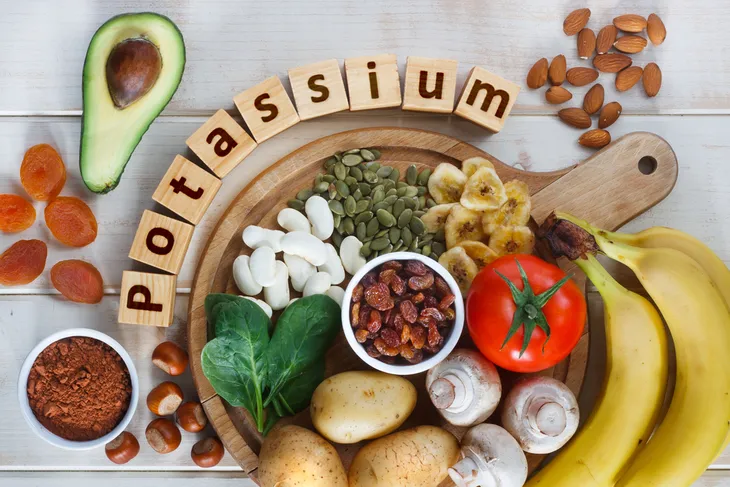Debilitating, disorienting, and seemingly at random, vertigo symptoms have the power to seriously stop you in your tracks. Worse still is the anxiety that comes with knowing that yet another vertigo flare could be lurking just around the corner. Thankfully, you are not helplessly left at the mercy of this confusing condition. There are treatments, medications, and dietary choices that you can make to help alleviate your symptoms as well as limit their occurrences.
What Is Vertigo?
Each and every one of us rely on our vestibular system to stay balanced. This system forms a link between our inner ear and our brain and serves to keep us on our feet when getting out of bed and while walking.
Injuries or conditions can sometimes inhibit a patient’s vestibular system’s ability to function, which in turn can lead to an inability to maintain one’s balance while standing, or vertigo.
Vertigo Causes
Vertigo isn’t exactly a condition in and of itself. It’s a symptom caused by one of 40 conditions and diseases that affect the inner ear. Conditions and diseases that include everything from infection, inflammation, and increased inner ear pressure. Vertigo causes are often distilled into two distinct categories: peripheral vertigo and central vertigo.
The peripheral vertigo category is responsible for the majority of cases and is used to describe cases that result from an inner ear problem. Though rarer, central vertigo happens as the result of a problem in the brain or brainstem like tumors, strokes, medications, or head, and neck injuries.
Vertigo Symptoms
Vertigo symptoms can last for as long as a few hours and as little as a few seconds. The symptoms are most commonly described as brief spells of dizziness, but can also be accompanied by nausea, impaired hearing, difficulty concentrating, a racing heartbeat, headaches, and double vision.
An inability to balance on two feet is commonplace, with many feeling as though they’re being pulled to one direction, spinning, swaying, or tilting. Now that we have a better understanding of what causes vertigo and the telltale signs, let’s take a look at some foods you’re better off avoiding when experiencing it.
AVOID: Caffeine
There’s still much to be learned about the link between what we eat and how it affects symptoms of vertigo, but the emergent data offers a lot of insight.
One thing we’ve learned is to lay off the caffeine. It’s been shown to increase the ringing sensation in the ear of a person with vertigo, and worsen the symptoms of Meniere’s disease. In all, if vertigo is an issue for you, it’s best to avoid consuming coffee, tea, and energy drinks.
AVOID: Salt
Salt plays a substantial role in the human diet and affects a number of important biological functions of the human body too. It affects how much fluid our body contains for one.
Following that chain of logic, if it’s determined that your vertigo is happening as the result of a buildup of fluid in the inner ear, you should probably ease up on the salt.
AVOID: Alcohol
Limiting your intake of alcohol or eliminating it entirely has been shown to help beat back the severity and frequency of vertigo symptoms.
More than that, alcohol abuse can cause vertigo in and of itself. That’s because alcohol is easily absorbed into the fluid of the inner ear and lingers long after the alcohol leaves the blood and the brain. As if you needed another health-related reason to kick alcohol to the curb for good.
AVOID: Sugar
Table sugar, maple syrup, sodas, pastries, and pretty much anything that contains a lot of sugar should be cleared out of your cupboards as well. Like alcohol, consuming a lot of sugary foods can lead to fluctuations in the volume of fluids in your ear and lead to vertigo flare-ups.
Restricting the amount of sugar you consume is always a good idea. Too much of it can lead to tooth decay, weight gain, energy slumps, and a lot more. Stop me if you’ve heard this one before.
AVOID: Tyramine
A common amino acid that helps regulate blood pressure, tyramine occurs naturally in the body and a select few decadent menu items including strong aged cheeses, cured meats, soybeans, fermented food, sauces, dried fruits, and more.
Consumption of this amino acid has been known to trigger migraines, nausea, dizziness, and vertigo. Talk to your doctor, and if they suggest limiting your intake of tyramine, familiarize yourself with the list above.
AVOID: Nicotine
It doesn’t matter how you ingest it, nicotine can and will constrict your blood vessels. This blood vessel constriction worsens vestibular problems commonly associated with symptoms of vertigo.
Nicotine has also been shown to reduce blood flow to the brain, which in turn, impacts your ability to recover from vertigo symptoms. Vaping, smoking, or chewing as a means to consume nicotine should be off the table already, but if it’s not, keep trying to quit.
AVOID: Inflammation
Do you enjoy fried foods, bread and pastries, red meat, margarine, and processed food and meat? Of course you do. Everyone does. The problem is that consuming too much of the aforementioned foodstuffs can cause substantial inflammation.
Inflammation is bad enough for those who aren’t dealing with the debilitating symptoms of vertigo. For those who do experience vertigo, inflammation-inducing food may make symptoms more severe and last longer. So prepare your own food at home, avoid anything pre-packaged, and monitor your symptoms accordingly.
What You Should Eat
You can’t run through a list of things you can’t eat without providing at least a little guidance on the foods that you should consume. Yes, there are recommended menu items for those looking to mitigate the troubling symptoms of vertigo.
Doctors recommend patients consume a diet rich in potassium, antioxidants, vitamin B & C, magnesium and zinc to help ease symptoms. It’s also important to stay hydrated, so be sure to drink water throughout the day.
The Takeaway
Living with vertigo is not without its challenges, but with what you’ve learned here today, know that managing your symptoms is entirely possible.
We should note that none of these recommended dietary adjustments replace the need for treatment or medication. General internet dietary advice is a poor substitute for professional medical help, so be sure to lean on your doctor’s expertise for your optimal next steps.















